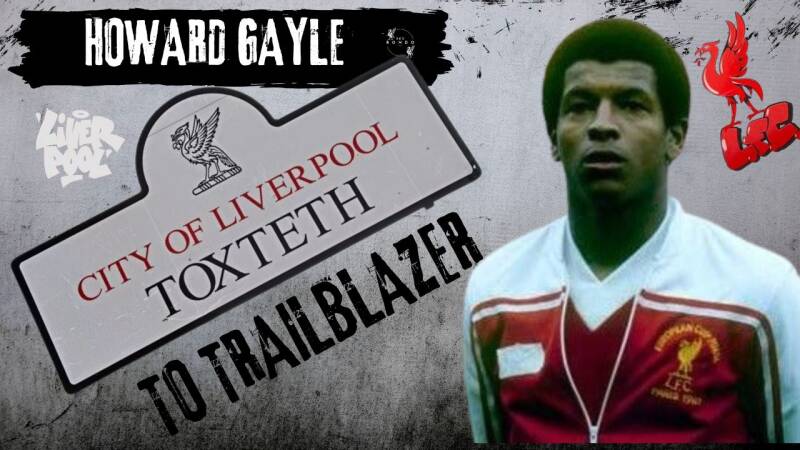Howard Gayle: The First Black Player Who Changed Liverpool Forever
By Tahmid Habib

When we talk about Black History Month in football, the conversation often gravitates toward the game's most decorated icons. But sometimes, the most important stories aren't about trophy hauls or goal records, they're about the courage it took to simply step onto the pitch. Howard Gayle's story is one of those.
Born in Toxteth in 1958 to a Sierra Leonean father and Ghanaian mother, Gayle grew up in a Liverpool that few outside the city truly understood. This was home to one of Europe's oldest Black communities, built through centuries of empire, seafaring, and trade. But belonging on paper didn't mean belonging in practice. Discrimination in housing, work, and daily life was brutal, and Gayle came of age where race shaped everything: the classroom, the street corner, and eventually the football pitch.
When he joined Liverpool's youth system in 1974 and signed professionally three years later, no Black player had ever worn the red shirt at senior level. Making his debut in October 1980 meant walking into spaces where he wasn't welcomed; the dressing room, the terraces, the culture itself.
Racism was out in the open, unchallenged and unashamed. Gayle has spoken candidly about teammates making comments, whispers when he entered a room, fans whose abuse could flip like a switch. Every mistake carried extra weight. There was no blueprint, no black elder to guide him. He was alone and he persevered.
His defining moment came on a spring night in Munich in 1981. With Liverpool locked in a European Cup semi-final against Bayern Munich and Kenny Dalglish injured early, Gayle was thrown into the fire. For over an hour, he tore through Bayern's defence with pace, power, and fearlessness, helping secure the 1-1 draw that sent Liverpool to the final in Paris. It was the kind of performance that lives forever in history, a true masterclass in courage under pressure.
Yet despite that heroic night, Gayle's opportunities remained painfully limited. He played just five times for Liverpool before moving on. His legacy was always going to be more symbolic than statistical, but that doesn't make it any less significant. When Gayle pulled on that red shirt, he carried more than his own ambition, he represented a community that had always been there but was rarely seen, rarely heard, rarely celebrated.
In the decades since, Gayle has refused to be just a footnote. He's become a powerful voice against racism, rejecting tokenism at every turn. In 2016, when offered an MBE for his anti-racism work, he turned it down on principle. ‘I am British,’ he wrote. ‘But the empire is something that oppressed black people.’ His stance spoke volumes. This was always about more than what happened on the pitch.
Today, a striking mural in Toxteth celebrates his contribution as part of Liverpool's evolving understanding of its own history. Gayle didn't just open a door, he walked through it when doing so meant risking everything.
For Black History Month, his story reminds us that progress in football has never come from comfort or goodwill, but from individuals willing to confront the game exactly as it was and demand better.
Howard Gayle didn't ask to be the first. But by being it, he changed everything that could come after.
As part of our #BlackHistoryMonth celebrations, Cody Gakpo shares his thoughts on the importance of equal opportunities, both on and off the pitch 💪
— Liverpool FC (@LFC) October 3, 2024


Add comment
Comments
Toxteth to Trailblazer! That’s great. He opened things up! A decent enough player too